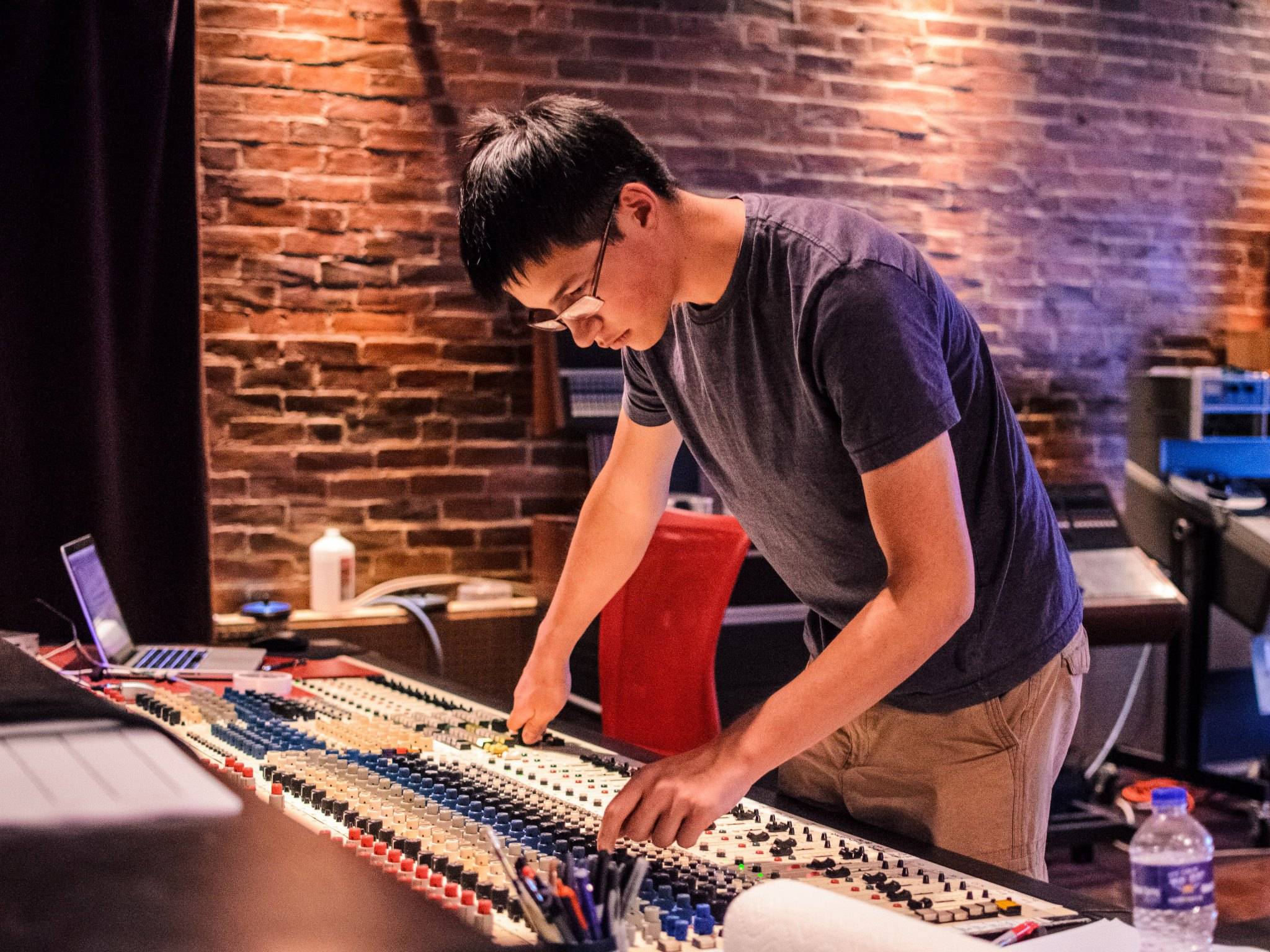If you are remotely engaged in our local music scene, you have very likely encountered Colin Althaus’s work, either as guitar/wizard of the now-defunct band Tara Terra, or you’ve probably heard the bands that he’s recorded, including Motes, Sleeping Okami, The Phantom Broadcast, Paul Kotheimer, and The 92s. We met at his humble apartment-studio. Althaus is studying electrical engineering at the U of I, and various electrical components and partially assembled effect pedals were strewn about a small workstation; evidence of the convergence of interests and knowledge.
Smile Politely: Why don’t you introduce yourself.
Colin Althaus: Sure. My name is Colin Althaus, I’m a recording engineer here in town. I’m also a student, studying electrical engineering here at the U of I. I’ve been in Champaign my entire life. I was born about one block from here, at Provena, actually.
SP: Awesome. How did you get into recording?
Althaus: Basically, when I was in elementary school, my dad was a worship leader at my church, and I would go along with him on weekends, and just sit around while he played. He was a bassist and guitarist. I would just sit by the sound board the whole time. There was a guy who was one of the sound techs at the time, named Jeff Zahos, who is a really accomplished recording engineer. He worked at Krannert on a lot of classical stuff, and also a really excellent percussionist, drummer, guy. I was probably in third or fourth grade, but he showed me how to work the soundboard, and showed me how to use Cubase. It was a really crappy version of Cubase that we had at the time, that was just super buggy, and had maybe 10 plugins built into it that were not very good. But basically after every service that my dad would play in, I would go to the soundboard afterwards and make a mixdown in Cubase, burn a CD, and we would listen to it on the way home.
SP: Wow.
Althaus: So basically, by the time I was 10 I knew how to work a DAW. [laughs] My parents actually got me my first mixer around 4th or 5th grade. I’ve still got it — it’s a Beringer — just the lowest-end mixer you can imagine. They also got me a little RCA/USB interface, so I could record into Audacity. They didn’t want to buy me music software right away, so I was recording with Audacity and my little mixer. I didn’t even have a mic with an XLR jack, so I had like, my dad’s ¼ inch mic, plugging that into the instrument input, which — you probably know — you should never do. [laughs] So it was just the crappiest thing, but I didn’t know better. I was just having fun at that point. So I think that having the intuition, just in my brain, really helped when I wanted to get serious about it later on.
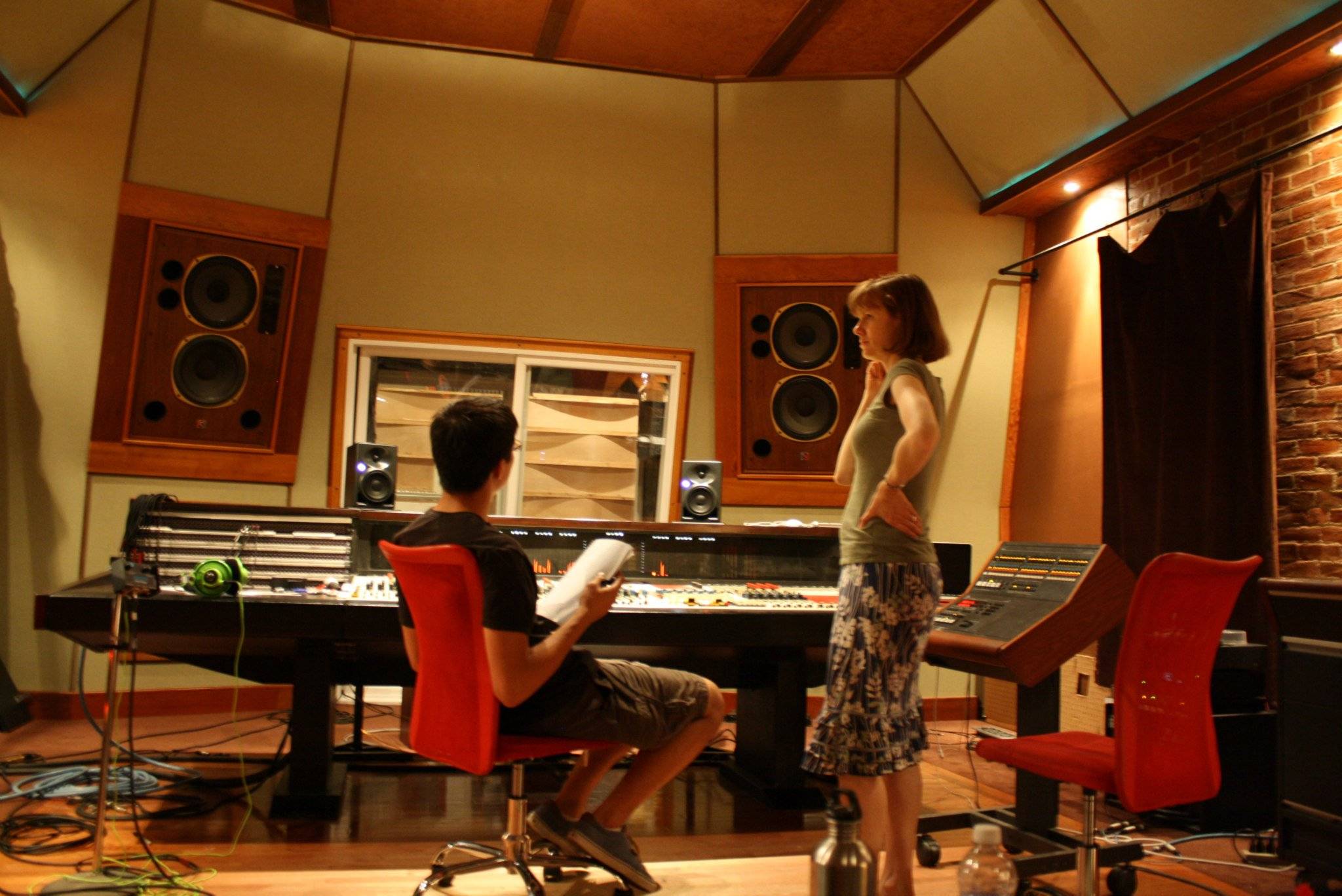
SP: So you said that was in 4th or 5th grade. Were any of your friends even into music at that age?
Althaus: Nah, not really. We had a piano at my house, so I would record myself playing sometimes, but no. The first time I really got into recording for other people was in high school. I joined a band, and we won a battle of bands competition, and we won some studio time at Pogo Studio. So we went in there, and just recorded a ton of crappy tracks, because we wanted to get as many as possible. He [Mark Rubel] was just like, “Well, you can take it home and work on it.” So imported the tracks into my crappy version of Cubase and tried to piece together some songs. So I kind of caught the bug again at that time.
SP: What was the name of that band?
Althaus: Elephant in the Room. Just kind of indie-prog rock. So after that, I realized that I could actually do this if I put the time and energy into it. After that band dissolved, I joined another band called, The Mourning After. [laughs] I didn’t name it. That was the first band that I felt like had the potential to self-produce. So, I bought a bunch of cheap multitrack recording equipment, like a Tascam interface and a drum mic kit, and we just went at it.
SP: How do those recordings stand up? Can you listen back now… [trails off awkwardly]
Althaus: Yeah! I used every free plugin that I could find. I moved to Reaper at that point. I was just messing around. I looked at some of them recently. I was trying so hard with these, really not very well-recorded tracks, that I was doing upwards of 40, 50 mixes per track. I would just bounce one out and listen to it, revise it, and bounce it out again. So this was really like the workshop. I had the freedom to figure it out, because it was my own band, and I wasn’t paying for studio time. So that’s where I really learned to do it.
SP: So the end result was pretty good?
Althaus: Yeah! The weird thing is, they actually sound like songs. I see the naivete in my production skills. But like the drums have kind of this cool, over-compressed sound to them. It’s definitely it’s own thing. I don’t know if I could put my name on it now, but they still sound like songs.
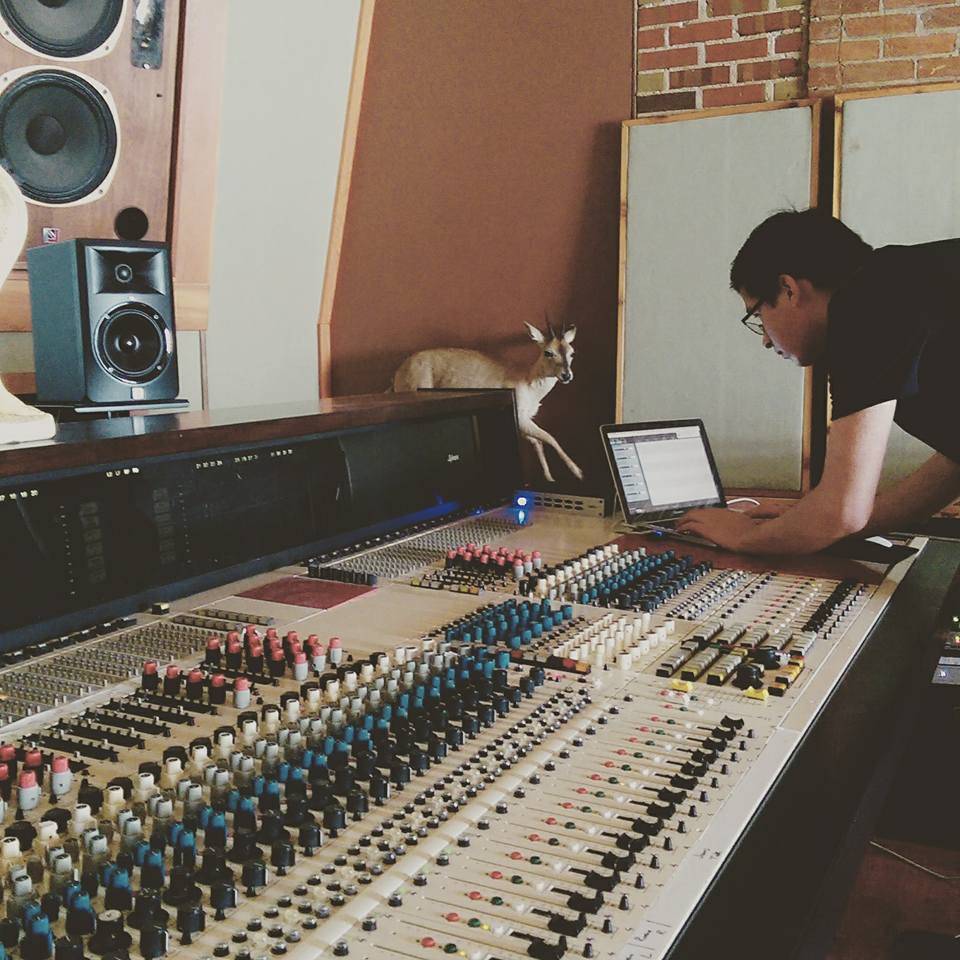
Photo by Priten Vora
SP: So you’ve obviously got a lot of hands-on experience. Did you ever take any classes, or anything like that?
Althaus: Yeah, I took Mark [Rubel]’s recording class at Parkland. That was just great to get into that room, while it existed. Rest in peace. I had my senior pictures taken at Pogo Studio because I thought it was just the coolest place. But yeah. I took that class, but for anyone who has taken it, it’s really just an overview of ideas in recording. It’s not a very technical, “Here’s how you do it,” kind of thing.
I guess the breakthrough for me, for understanding how to do it professionally, was when I sent an email to Matt Talbott to ask if I could work out of his Earth Analog studio, and I really didn’t expect him to let me, because there is a lot of really expensive equipment in there, and I was in high school at the time. I don’t think I told him that I was in high school, so that might have been part of it. [laughs]. He was like, “Come on over, we always want more engineers.” I don’t think he knew what he was getting into, but he graciously took me in. He was like, “Yeah, you can come in here. I’ll give you a discount while you figure it out and work on your own stuff, as long as someday you bring in some bands.” So at that point, I went in there and did the first Tara Terra record.
SP: Nice. Do you still work out there much?
Althaus: Yeah, I just did Sleeping Okami out there. Last year, we did The Phantom Broadcast. It’s like a six song album, just because a lot of Evan [Opitz]’s songs are really long. But yeah. I try to track out there whenever I can. The room is great, and some of the equipment is really interesting. It’s not what you would expect just walking into your cookie-cutter industrial studio. It’s a lot of fun.
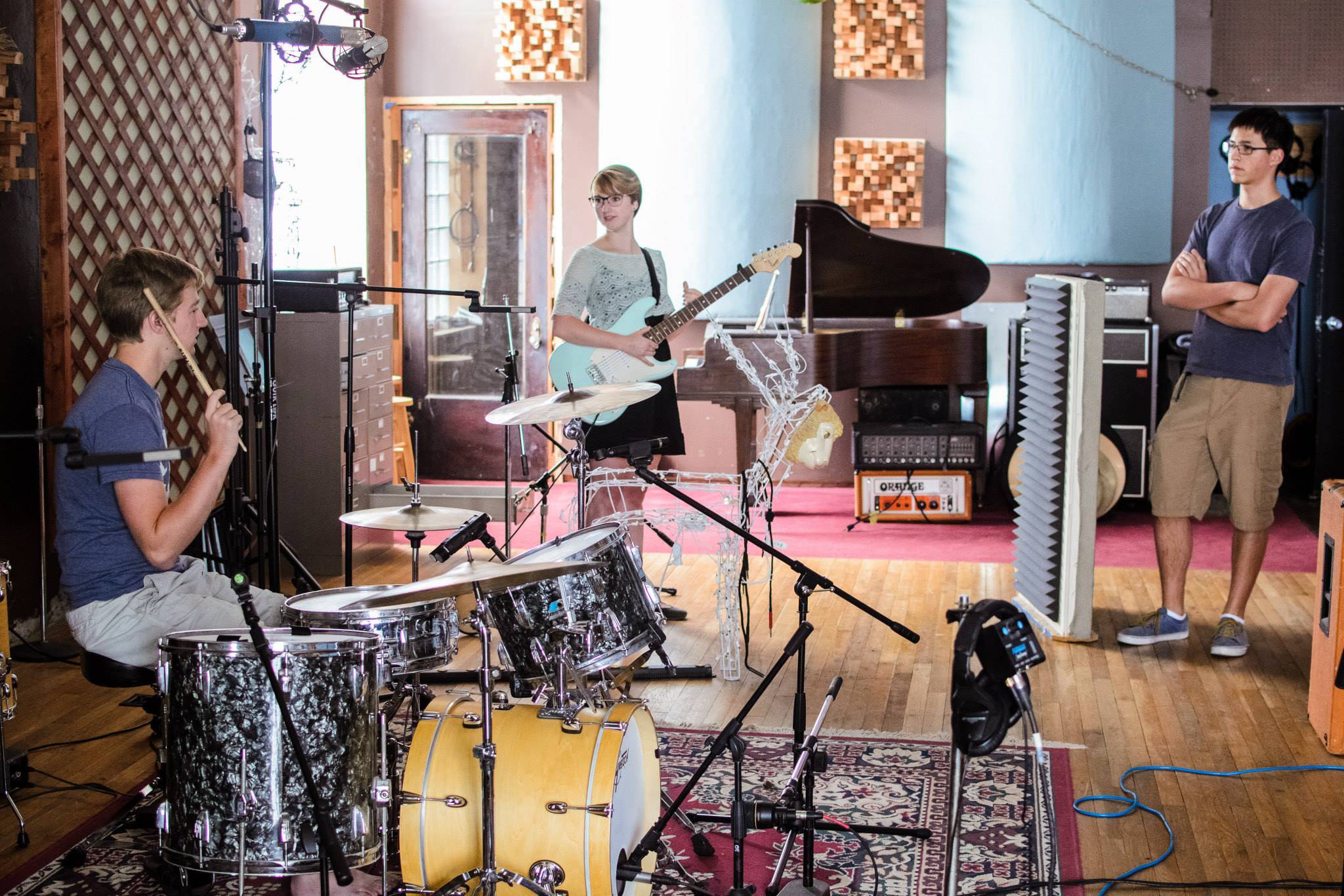
Photo by Priten Vora
SP: Do you mess with recording to tape while you’re out there?
Althaus: Yeah! I did both of the Motes records to tape. I can’t say that I’m an expert in it at all, but I love it for the workflow. Even with the second Motes record, I felt like I was just starting to figure it out; just starting to figure out how to push the saturation and compression, without just completely destroying all of your dynamic transients.
SP: What’s the difference, on the production side of things, recording to tape versus digitally?
Althaus: Production on tape is nice because it forces you to commit. The way that we did it with Motes was, we have two reels of tape. We only dump to digital at the end. So we mixed in digital, and we did vocals to digital, but we did all of the basics to tape. So what that means is that you can’t really save two takes of the same song. So we’d listen back, decide if it was good or not, and if it wasn’t good enough, we’d record over it. So that forces bands to really get the live performance. Maybe one or two times we did a punch — did a live punch — if we felt like a song was good up to a certain point. So it forces bands to commit, which is really good. I’ve found myself in situations where I have like 20 drum takes to sort through, to try to piece together a performance, and that is just not very fun. So I like tape a lot for that reason.
As for the actual recording side of things, I find myself having to compress the mix less, because tape adds a compression on its own. The tape machine at Earth Analog is not a super crunchy tape machine–It’s very clean–but it does, at 15 ips, duck off the transients and adds a fatness to the bottom end, but then it adds a certain character to the high end that–I don’t know–honestly, sometimes I find myself trying to undo. I think that I’m really used to recording in digital, so sometimes I find myself trying to fix things that really shouldn’t be fixed, and then I find myself going back and undoing it. That’s just a product of growing up on digital, in a very clean, sterile environment, and being used to how that sounds.
SP: You mentioned that you got back into recording with your own band. When did you start recording other bands?
Althaus: My first project was with a band called, An Evening with Your Mother. They did a split with Jack Anthony and the Desperados. So I was recording high school bands at first. Then I did the Tara Terra stuff.
![]()
SP: [laughing] An Evening With Your Mother. Amazing. Do you have a particular sound or style that gravitate to? Do you go for the “live”, organic thing, or the more polished, produced thing?
Althaus: My style really just depends on the band that I’m working with. I tend more towards live take performances. I don’t try to apply any sort of a template to any band that I work with. Everyone is going to be a little different. I think my strength is not in my process, but in my lack of process. I try to adapt to whatever the band wants, and just try to vibe with it. But yeah. In general, I shoot for live takes. It’s less pain on my end, sifting through takes later, trying to piece together a performance. I think it’s more musical to get people in a room together. I don’t think that all bands should do it that way. With my band, at the time, Tara Terra, it was almost all overdubs. We would maybe do drums and bass together. We liked that process, of being able to workshop things, but we really trusted each other, and had a shared vision of production. But with a lot of bands, they kind of already have that, and all they need to do is just get it out there.
Ultimately, it’s whatever makes the band the most comfortable. Working on the most recent Motes record, for example, we did live performances in a single room, with all the amps in the same room. The byproduct of that was that it felt like they were just practicing, and they were extremely comfortable. On my end, a little bit of bleed is not going to hurt anybody. So the tradeoff is there’s a little bit of bleed between mics, but the band plays much more comfortably. I was talking to Matt Mitchell [of Motes], and he didn’t even wear his headphones for half the takes. He just listened to his amp.
SP: What would you say is your biggest strength, as an engineer?
Althaus: I think that I get good performances out of bands. I think bands play well when I’m helping them.
SP: What goes into that, do you think?
Althaus: For me, it’s adapting my vision and perspective to what I can see them achieving on their own. I think that the mistake of some recording engineers is that they feel like the band doesn’t have potential, or that the band will only have potential if they fit the engineer or producer’s mold. For me, for the most part, I think music sounds the most like music when it’s the band doing what it does best. When I hear a band, I hear them playing the best that they can, rather than hearing them how I want them to play. So once I get that sound in my head, and that vision for how things will turn out in the end, it’s just a matter of using incremental steps to get there. “Here’s a couple things you can tweak.” Once we get the performance, I think I have a good ability to get the mix to sound like the actual performance, with the same energy.
SP: Ah. That’s not easy.
Althaus: Oh, and dialing in guitar tones, I think is one of the things that I do best. I’m a big fan of turning up a little amp really loud. Power amp distortion is the secret weapon. Leave your preamp alone. When you saturate your preamp, you get even-order harmonics, which sound, to me, harsher and less complex than odd-order harmonics, which happen when you turn up your power amp. You get complex break up. Preamp distortion can sound juicy, but it’s predictable. Turning up a small amp, you’re overdriving the preamp, but the power tubes just get absolutely mashed, and that sounds really interesting.
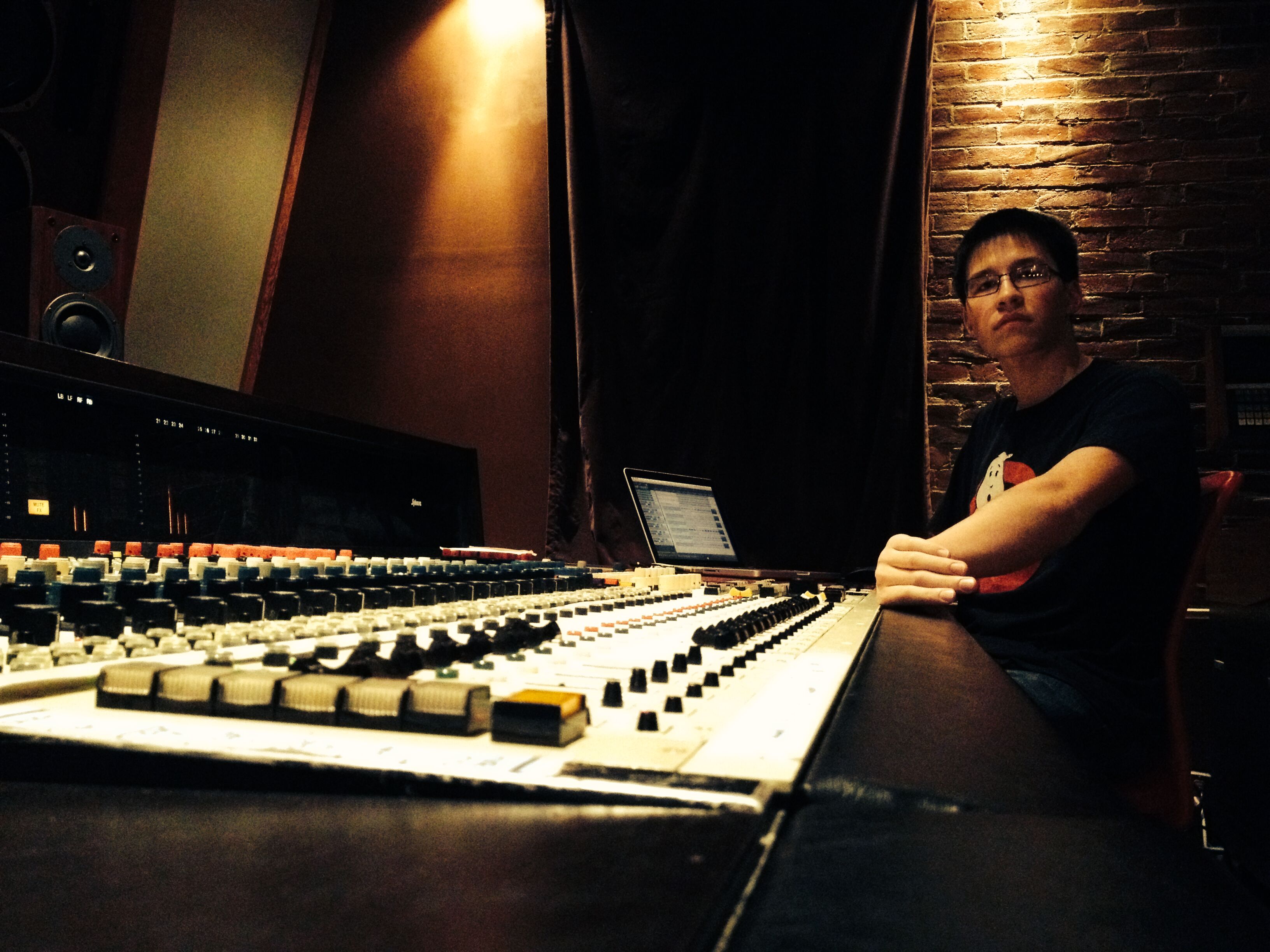
If you’re interested in learning more about Althaus and his work, he welcomes contacting him at [email protected].
Top photo by Priten Vora.








